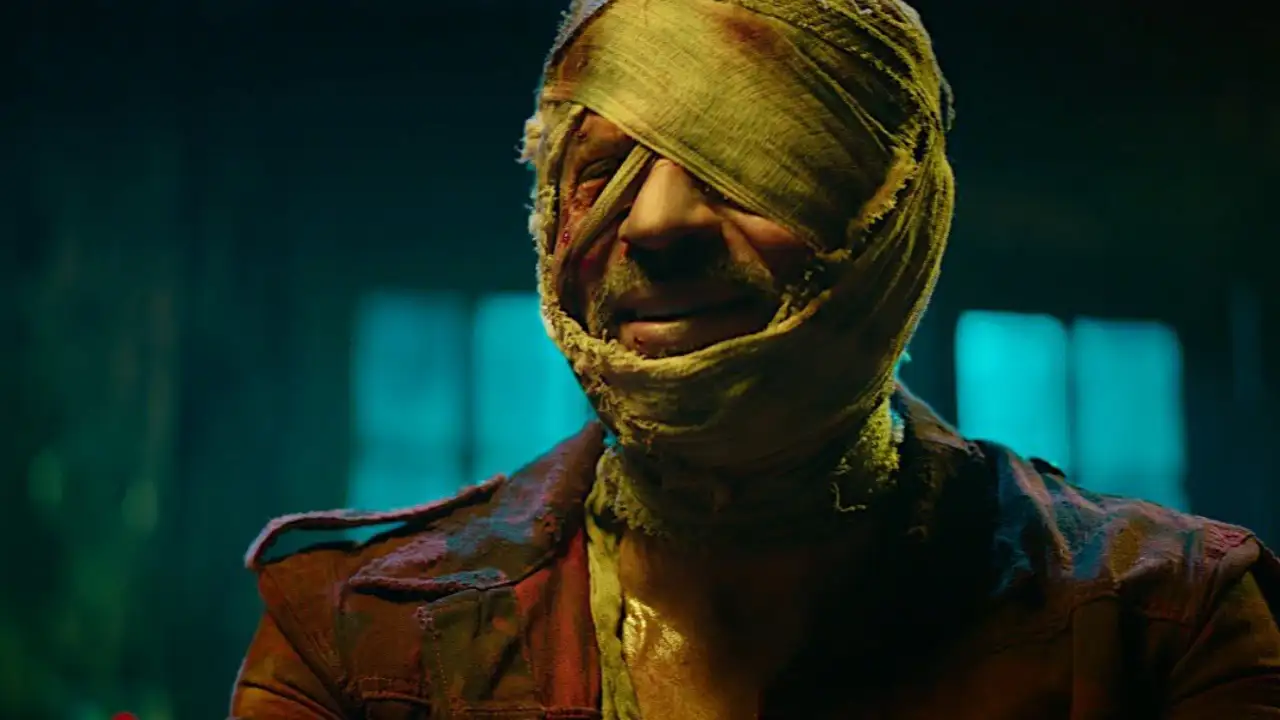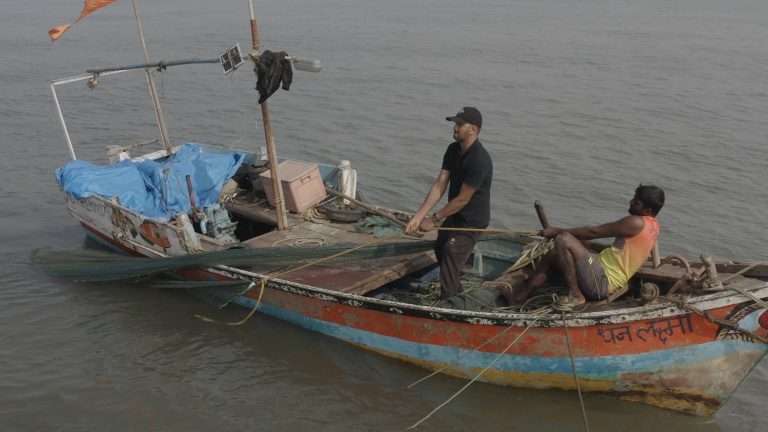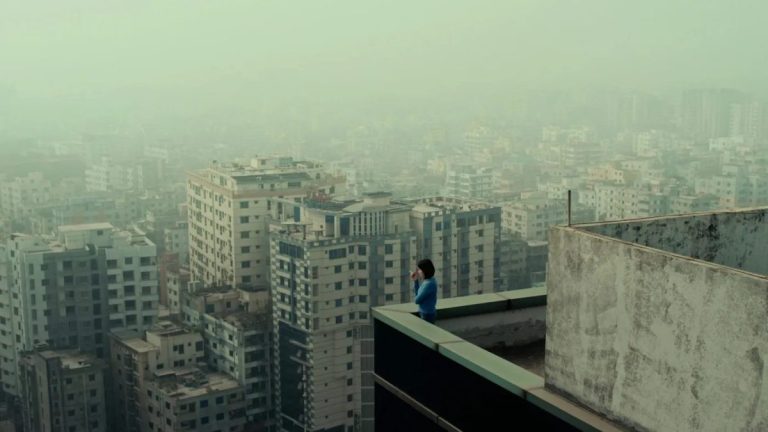You may say it’s blasphemy, blame it on the hype, or even call it the Bebo ‘Guts’! But why Shah Rukh has turned out to be the voice of the millennium has a trajectory to its name. It is seldom an opinion when Shah Rukh Khan is termed as the hero of the millennium, but he has proved to be the Voice of Friday, quite triumphantly as we witnessed last year. On the 3rd of June, 2023 Gauri Khan Productions confirmed the project, contributing 300 crores to its making. The multi-starrer box-office extravaganza has already crossed its anticipated 150-crore mark, demarcating the plethora of worldwide cine-craze revolving around its release.
But the question persists: What makes Shah Rukh Khan the hero of ‘Jawan’ in this political year? The tweet by Red Chillies Entertainment answers it all, ‘Ye to bas shuruaat hai’ (This is just the beginning!). Once you mount the Friday release, the King of Bollywood emerges as the Khan, and not just the Pathaan but as the voice against vices, the voice that speaks up on the categorical tax that charges more on the tractor, less on the Mercedes. The hero can get into trouble for this film and has seldom been warned as clearly as before.
Recommended Read: Celebrating Secularism With Shahrukh Khan’s Pathaan (2023)
Recalling the dialogic pattern of our superstar calls out for a few momentous repetitions. Is this the Shah Rukh of our hearts or our conscience? Meenamma is warned, “Tu Don ki Nahi, Donkey ki Ladki Hai! (You aren’t the child of a Don, but a progeny of a Donkey!)” Despite the abhorrent nature of the Indian cinematic spectrum, Shah Rukh emerges as the messiah. He is, however, a failure. In the same film, Chennai Express (2013), our platonic hero declares, “Don’t underestimate the power of the common man”! The trajectory from Darr and Duplicate to King Khan was a tumultuous time.
In one of his interviews, he declares incessantly, “Aaram haram hai (To rest is to sin),” and yet emerges as a retroactive product for generations to come. Shah Rukh doesn’t care about kitsch, even though he is well aware of the epoch. He is a direct apostle, an avowed leader within his chalking. In Jawaan (2023), the muddy loss of memory retains his autobiography. Shah Rukh loosens his retrospective identity only to discover it through his long-lost son. A reincarnation of Karan-Arjun? A palliative on the K-Jo diet? Whatever you may say, he declares, “Ek Raja tha, ek ke baad ek jang haarta gaya (Once there was a King, who recurrently lost all his battles),” only to manifest his angst.
The film, without due spoilers, shows an action sequence wherein Azad shoots a Muslim lady during the hijacking process. It breaks down the public and punishes the effervescent massman, only to cut to her resurrection after the end of his achievement. The reference to the lessened tax purchase of Mercedes (8 percent) as opposed to the interest rate for farmers (13 percent) takes away the cake. Azad is his name, and he fights for Azadi (Freedom). Shah Rukh spells the voice of opposition through cinema. As a whole, this is a vehement tool for mass media, even processed as the very first time that Bollywood promulgated a film on such political rhetoric as this one.
South Indian voices, quite familiar to Atlee, involve a dangerously large enclosure of risks. In this film, the capitalist taboo on Government sector firms and subsequent initiatives truly initiates the Kafeel Khan case into an unavoidable campaign. Shedding light on the manipulative nature of prejudice and latent narratives, it brings out the Indian media as a fulcrum of cowardice and power-laden communication.

In the metro hijack scene, Shah Rukh wants the Agriculture Minister, and he is (full proof) presented in 5 minutes. The same can be said for the Health Minister who provokes a bullet to his chest in a public gathering. Whether or not these are associative or affirmative actions is a question for future candidates, what entails the making of history demands a deeper appreciation of the ‘word.’ In an era of reluctant and fastidious citizens, Jawan incorporates a Manipuri incapacitated by AFSPA.
It incoherently breaks the cyclical gender roles and paradoxically causes a rapid transition between familial relationships. The vigilante group crumbles before Shah Rukh’s loyalty- “Bete ko haath lagane se pehele baap se baat kar (Before touching the son, talk to the father).” For the NCB, if Shah Rukh prominently persists as the Mufasa, then Simba will survive no matter what. The question is, why are we concerned at all? Even if it’s an Aryan Khan getting into trouble, won’t we continue singing the National Anthem before the end game? Well, the answer is a clear no.
Kaalie, portrayed by Vijay Sethupathi, is a direct doppelganger of Nirav Modi or Vijay Mallya. The stylist resembles another ‘leading’ figure in his whiteboard, but that’s a question for elsewhere. The violence is an incitement of awe and blind acquisition to the multitude you and I are well aware of. It is a matter of rejoicing and unbound liberty. Looting taxpayers’ money and asking the leader what they will do for your kids or your employment has been a dichotomous issue at hand for decades. Why has Satyamev Jayete by Aamir Khan failed to perform as this one-day release? What is lacking in the fruit of these reality shows that you and I are getting fooled by? The answer is simple: Honesty and insult.
Observing his underlining reign over Bollywood, what can really go wrong? All of his films have been experiments on his own self, be it a Kuch Kuch Hota Hai or a Zero. In My Name Is Khan, SRK unabashedly proclaims, “Rishtey sirf khoon se nahi hote, mohabbat se bhi bante hai (Relationships are not only made through blood but also through love).” Such is the approach appropriate for this actor. He is kind, for he transcends the wayward spirit of Indian politics. But he is also a vulture, scraping off a corpse of his own life, long lost and dead.
If, as in Don 2, SRK is reminded of your upcoming future through the darkness in his present times, then the Joker in delirium can play the same set. It’s rightly said in Yes Boss!, “Joker agar baazi banaa sakta hai toh Joker baazi bigaar bhi sakta hai (If the Joker determines the chances of winning this game, then he can, at the same time, destroy your chances).” Similarly, Shah Rukh is not here to seek permission. He tells you that ‘failure makes you humble’ (Yale University, 2012) and ‘confusion is the route to all clarity in the world’ (Edinburgh University, 2015). He distinguishes the actor, the star, and the personality in him, only to merge them all out into play.
“Kyuki koi dhanda chhota nahi hota aur dhande se bada koi dharam nahi hota (No work is comparatively small, and there’s no religion bigger than your work”). Proof that luck is like love, unrequited. And Shah Rukh doesn’t cease striving for it, whether big or small. He is a Jawan who dies eight times, only to live the ninth, “isliye nahi ki koi aur nahi mili… par isliye ki usse mohabbat karne se fursat hi nahi milti (not because I love someone else, but because I don’t find time to stop loving her)”. This is Shah Rukh, and that is Bollywood. The mike may drop, but the show must go on.

![22 July [2018] Review: Strong Start Ruined By A Tedious Middle Portion](https://79468c92.delivery.rocketcdn.me/wp-content/uploads/2018/10/22-july-768x432.jpg)




